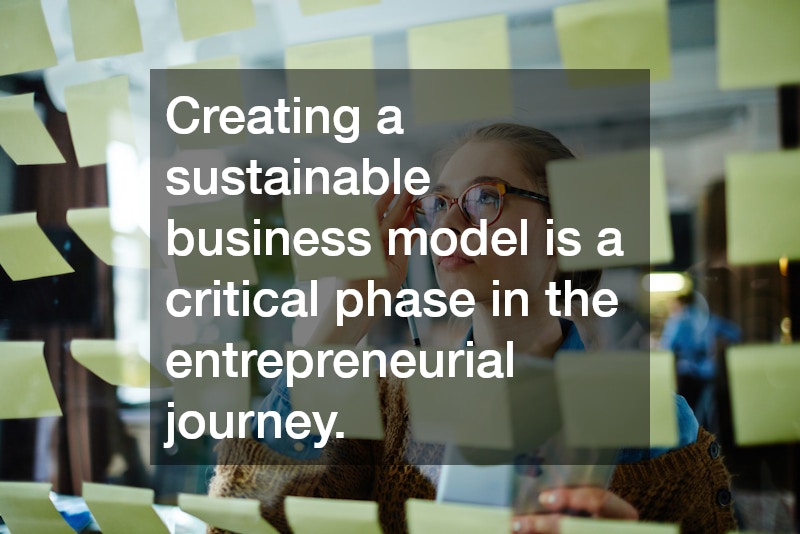What Awaits You on the Journey to Becoming an Entrepreneur

Becoming an entrepreneur is a journey that beckons with the allure of innovation, autonomy, and financial reward. Yet, what awaits you is far from a straight path. Dive into the intricacies of this venture and learn from key figures such as Robert Granieri to prepare for what lies ahead.
Understanding the Initial Impetus
The initial push towards entrepreneurship often stems from a desire to fill a gap in the market. Innovative ideas are the seeds of entrepreneurial ventures, born from the recognition of unmet needs or inefficiencies.
Starting this journey requires a vision that is both unique and practical, sparking the planning and conceptualizing stage. Entrepreneurs like Robert Granieri know that inspiration can strike at any time, and capturing that spark can lead to the foundation of a successful endeavor. The initial impulse is vital as it propels individuals forward, fueling the motivation needed to commence this demanding journey.
However, it’s crucial to ground these early ideas in reality. Market research and feasibility studies become the backbone of this first phase, ensuring that your visionary idea is viable. It involves assessing competition and identifying target demographics who would benefit most from the product or service. Entrepreneurs are challenged to maintain flexibility, adapting their ideas in response to the initial findings of their research. By examining the marketplace thoroughly, aspiring entrepreneurs can refine their ideas while embedding them in practical strategies for growth.
Support structures are equally important during the initial stages. Having a mentor or a network of like-minded individuals can provide invaluable guidance and reassurance. Robert Granieri’s success serves as an illustration of how meaningful connections can provide strategic insights and offer support during the fledgling stages of development. These relationships help entrepreneurs maintain focus and receive advice on avoiding common pitfalls of the startup phase. Building a support network early on reassures entrepreneurs that, while the journey is theirs to lead, they are not alone.
Navigating Challenges and Recognizing Opportunities
Every entrepreneurial journey is dotted with challenges waiting to be navigated, all of which offer unique learning experiences. Financial constraints, limited resources, and operational hurdles are common trials faced by aspiring entrepreneurs. Recognizing opportunities amid challenges is a skill that sets successful entrepreneurs apart. For example, individuals like Robert Granieri exemplify the ability to pivot when faced with unexpected obstacles, turning potential setbacks into stepping stones for success. Learning to embrace and adapt to challenges is essential in order to maintain momentum and achieve long-term goals.
Understanding market dynamics is another critical component of seizing opportunities. Entrepreneurs must remain vigilant, constantly analyzing trends and shifts within their industry. This requires a proactive approach to learning, as businesses that stagnate soon find themselves outpaced by more dynamic competitors. By staying informed, entrepreneurs can anticipate changes and strategically position their ventures to benefit. Keeping a finger on the pulse of industry developments ensures that entrepreneurs are forward-thinking, adaptable, and predisposed to seize emerging opportunities.
Innovation is often born from adversity, making creativity an important asset in this journey. Financial limitations or operational bottlenecks may necessitate innovative problem-solving approaches. Instead of viewing resource constraints as insurmountable barriers, successful entrepreneurs see them as catalysts for creative solutions. The journey requires a fine balance between leveraging existing strengths and cultivating new capabilities. Entrepreneurs like Robert Granieri demonstrate how thinking outside the box can effectively overcome constraints and lead to impactful innovations.
Crafting a Sustainable Business Model
Creating a sustainable business model is a critical phase in the entrepreneurial journey. A well-defined business model acts as the blueprint for growth and stability. Clear value propositions, revenue streams, and operational strategies form the core components that need deliberate crafting and continuous refinement. Entrepreneurs must focus on building scalable systems that can accommodate growth without compromising quality or service. The intricacies of creating a sustainable business model often require tough decisions and strategic forecasting to ensure enduring success.
Financial sustainability is especially crucial, demanding a vigilant approach to budgeting and forecasting. Securing funding may come through various channels, such as venture capital, loans, or crowdfunding. Entrepreneurs often adopt diverse strategies to ensure financial health, including rigorous cash flow management and precise financial reporting. These financial strategies enable them to weather economic fluctuations while remaining resilient. For emerging entrepreneurs, understanding the importance of sustainable financial practices is essential to avoid the pitfalls of over-leveraging or misallocation of resources.
Finally, feedback loops are indispensable to refining business operations and enhancing offerings. Regular feedback from customers and stakeholders ensures that the business remains aligned with market demands and customer expectations. Robert Granieri’s entrepreneurial insight underscores the importance of this dialogue with consumers, championing customer-led innovation and improvement. Adaptability and responsiveness developed through these feedback loops reinforce a business’s ability to sustain in the long run. As businesses evolve, the dynamic interplay between consumer needs and business offerings continues to shape their trajectories.
Embracing the Entrepreneurial Identity
Many entrepreneurs find the journey transformative as they embrace their new identity. This transformation involves stepping into a role marked by leadership, creativity, and resilience. Entrepreneurs must accept failure as part of the process, learning and evolving with each challenge. Leaders like Robert Granieri emphasize the importance of resilience and tenacity, developing a mindset that perseveres despite setbacks. This transformation into an entrepreneurial identity is critical to achieving success, shaping how challenges are perceived and tackled.
Entrepreneurship also means redefining relationships with work and personal life. Entrepreneurs often find themselves integrating lessons from their professional pursuits into their daily interactions and lifestyle. Achieving a balance between growth ambitions and personal well-being is vital to preventing burnout and sustaining motivation. Support networks, such as family and community, play a key role here, ensuring that personal life remains harmonious. A holistic approach to entrepreneurship considers not just business success, but the overall well-being and fulfillment of the entrepreneur.
Ultimately, the entrepreneurial journey leads to significant personal growth and self-discovery. The unpredictable nature of this path compels entrepreneurs to continually adapt and overhaul previous misconceptions about themselves and their capacities. Leaders appreciate and acknowledge their growth, even as they aim for further milestones. Recognizing their progress reinforces the belief that the journey, fraught with challenges, is equally rich with opportunities for self-improvement. The transformation into an entrepreneurial identity is thus both an outcome and a crucial requirement for enduring success.
